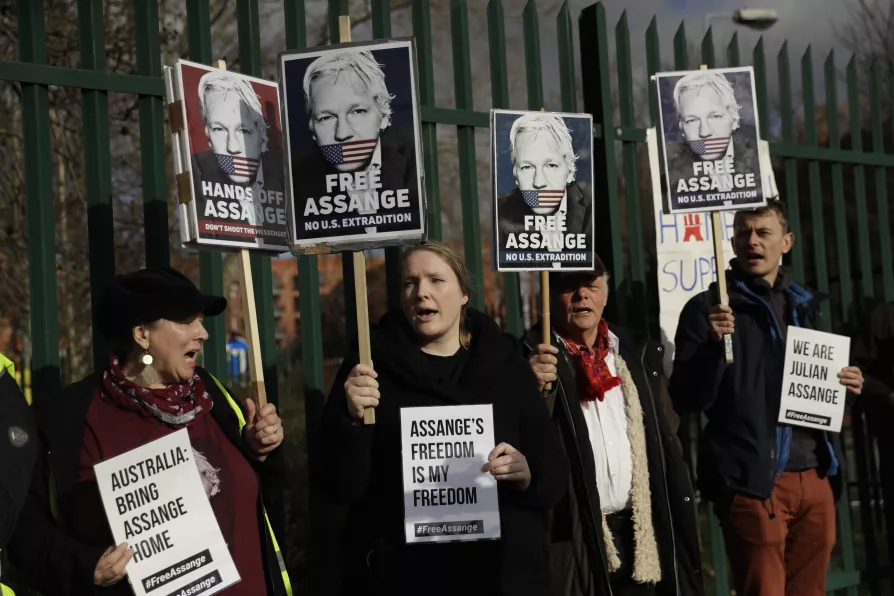
 Supporters of Julian Assange hold placards as they protest on the second day of a week of opening arguments for the extradition of Wikileaks founder Julian Assange outside Belmarsh Magistrates' Court in south east London
Supporters of Julian Assange hold placards as they protest on the second day of a week of opening arguments for the extradition of Wikileaks founder Julian Assange outside Belmarsh Magistrates' Court in south east London
JULIAN ASSANGE made desperate phone calls to the US State Department warning that unredacted leaked documents were about to appear on the internet, his extradition hearing heard today.
Mark Summers QC, for the Wikileaks founder, said that Mr Assange had worked assiduously to ensure that leaks were redacted so as not to endanger life.
He said the password to an encrypted database was included in a book by Guardian journalists, however, and that unredacted leaks were subsequently published by platforms unrelated to Wikileaks.
![[Pic: Andrew Wiard]]( https://msd11.gn.apc.org/sites/default/files/styles/low_resolution/public/2026-01/19860330_a_wiard_0001JPG.jpg.webp?itok=F659dJUa)
As advertising drains away, newsrooms shrink and local papers disappear, MIKE WAYNE argues that the market model for news is broken – and that public-interest alternatives, rooted in democratic accountability, are more necessary than ever

ANDY HEDGECOCK, MARIA DUARTE and ANGUS REID review The Six Billion Dollar Man, Avatar: Fire and Ash, Goodbye June, and Super Elfkins

SOLOMON HUGHES highlights a 1995 Sunday Times story about the disappearance of ‘defecting Iraqi nuclear scientist.’ Even though the story was debunked, it was widely repeated across the mainstream press, creating the false – and deadly – narrative of Iraqi WMD that eventually led to war











